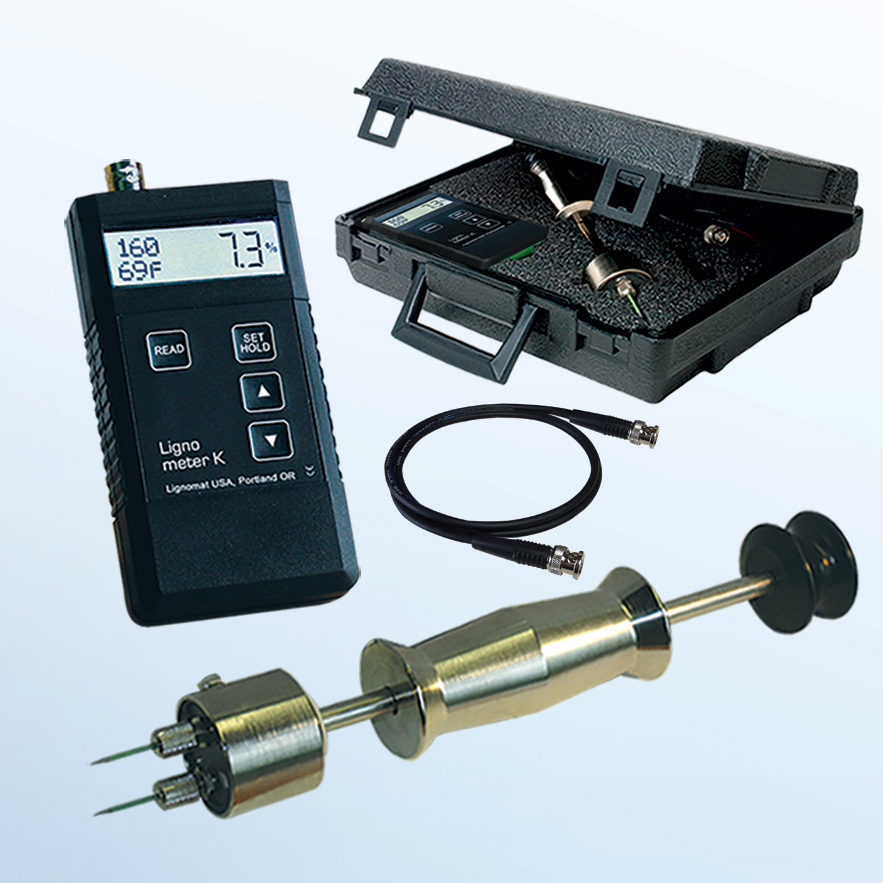Recognizing the Different Sorts Of Moisture Meters and Their Applications
Recognizing the Different Sorts Of Moisture Meters and Their Applications
Blog Article
The Ultimate Guide to Dampness Meters: A Comprehensive Summary and Exactly How They Can Conserve You Cash
In the world of building upkeep, building and construction, and different industries, the importance of precisely gauging moisture levels can not be overstated. Dampness meters serve as essential tools in finding and keeping an eye on moisture material in materials, aiding in protecting against pricey problems and making sure the quality of items. Recognizing the subtleties of different kinds of dampness meters, their applications, and the prospective cost-saving benefits they supply can be a game-changer for companies and specialists alike. Finding how these gadgets can not only simplify procedures however also add to monetary cost savings is a journey worth starting.
Types of Dampness Meters
One usual kind is the pin-type moisture meter, which gauges the electric resistance in between 2 pins put into a product. Pinless moisture meters, on the other hand, use electromagnetic sensing unit plates to check a bigger location without triggering damages to the product's surface.

Moreover, there are also specialty wetness meters developed for details materials like hay, dirt, or grain. These meters provide accurate dampness analyses tailored to the one-of-a-kind residential or commercial properties of the product being examined. Infrared moisture meters determine the thermal buildings of a material to identify its wetness content non-invasively, making them helpful for applications where pin or pinless meters might not be suitable. Recognizing the various sorts of moisture meters available can aid sectors select the most appropriate device for their details moisture dimension needs.

Benefits of Utilizing Dampness Meters
Moisture meters provide indispensable benefits in properly keeping an eye on and analyzing wetness degrees in varied materials and atmospheres. One of the key benefits of using dampness meters is the prevention of possible damages created by excess wetness.
In addition, making use of moisture meters can lead to raised energy efficiency. In agricultural settings, dampness meters play a crucial function in enhancing crop returns by enabling farmers to monitor soil wetness levels and make informed irrigation choices.
Just How to Choose the Right Moisture Meter
When selecting a wetness meter, it's vital to make sure that the meter is appropriate for the certain material you will certainly be testing. Different materials have differing electric buildings that can influence wetness readings, so selecting a meter developed for your product is vital for precise results. By meticulously evaluating these factors, you can choose a wetness meter that satisfies your requirements and supplies accurate moisture measurements for your projects.
Proper Techniques for Dampness Meter Use

Price Financial Savings Via Dampness Meter Applications
Just how can the critical usage of moisture meters result in significant expense savings across various industries? Moisture meters play a crucial role in cost financial savings by preventing possible damage and making sure quality assurance in various markets. In the agriculture sector, moisture meters help in figuring out the ideal time for harvesting plants, preventing over-drying or excess wetness that can impact the end product's top quality. This exact monitoring aids farmers stay clear of unnecessary losses and optimize their yield.
Likewise, in building and construction, moisture meters assist protect against expensive problems by finding dampness levels in structure materials, such as wood or concrete, which can result in you could check here architectural issues if not resolved quickly. By identifying problem locations early on, professionals can take corrective actions to avoid extensive repair work or substitutes, inevitably conserving money and time.
Furthermore, in the food processing sector, dampness meters are important for keeping an eye on product high quality and making certain conformity with safety policies. By precisely determining dampness content in food, producers can prevent wasting, keep freshness, and minimize waste, causing substantial price savings. Generally, the strategic application of wetness meters is a valuable investment that can lead to substantial expense decreases and enhanced performance throughout numerous industries.
Conclusion
In conclusion, moisture meters are beneficial tools for measuring and spotting dampness degrees in various materials. By using the appropriate moisture meter and following appropriate strategies, users can successfully stop pricey problems triggered by excess dampness.
Moisture meters serve as essential devices in identifying and keeping track of moisture content in products, assisting in protecting against pricey damages and ensuring the high quality of products. Infrared wetness meters determine the thermal residential properties of a material to establish its moisture material click resources non-invasively, making them useful for applications where pin or pinless meters may not be suitable.Moisture meters use invaluable advantages in accurately analyzing and keeping track of moisture degrees in varied materials and atmospheres. In farming setups, dampness meters play an essential role in maximizing plant returns by allowing farmers to check soil moisture levels and make informed irrigation choices.In verdict, dampness meters are beneficial tools for measuring and finding wetness levels in different products.
Report this page